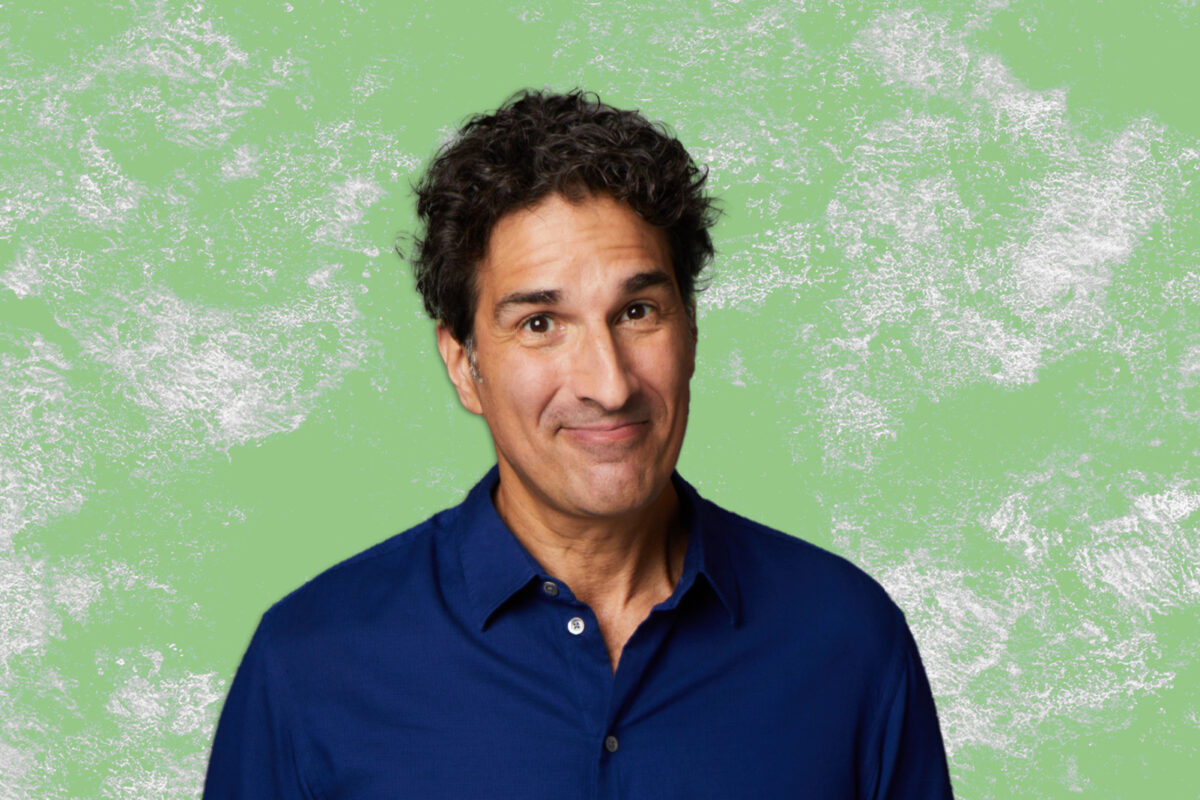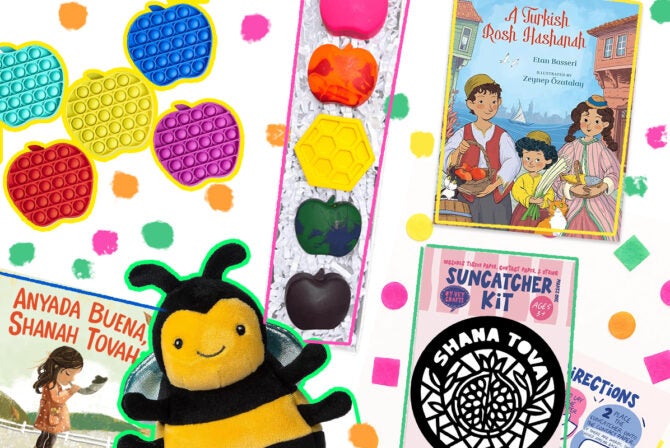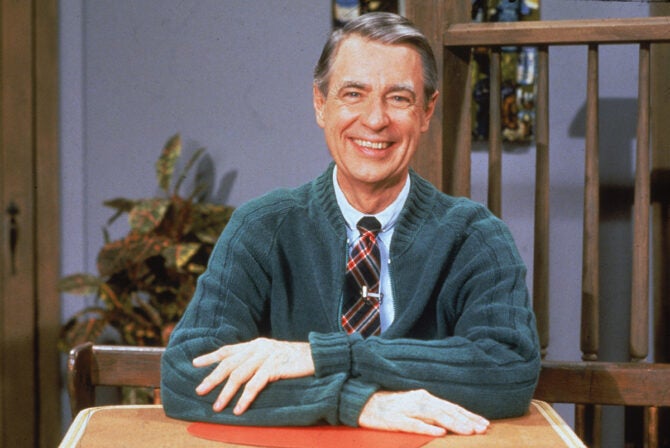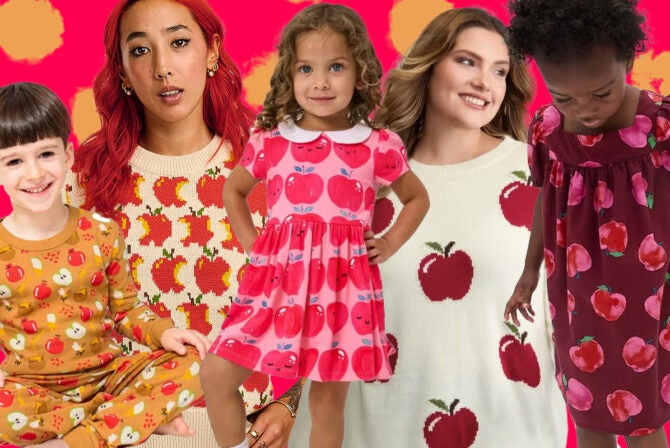As a Jewish person with a broken brain, I have a lot of impeccably made and devastating art I can turn to for reference and validation. Yet one of my favorite representations of Jews with mental illness is the 2019 Gary Gulman comedy special, “The Great Depresh.”
In it, the Jewish “Last Comic Standing” finalist and the author of the recently released memoir “Misfit” recounts his battle with depression, one that led him to a psych ward hospitalization, to electrotherapy and, perhaps most scary of all, to move back in with his Jewish mother.
I love Gulman’s depression comedy for its uncharacteristic compassion. While he paints such a vivid and truly funny picture of the experience of depression, he doesn’t take cheap shots at anyone, including himself. Instead, Gulman’s humor and writing is deeply observational and edifying. He manages to make you laugh with incisive observations, like how depressed people eat ice cream with a fork, or how even the most beautiful sunset can remind you of the idea of giving up when you’re down. Perhaps most importantly, he paints a rare portrait of someone in a good place in their healing journey, a place that for so many may still feel unattainable.
His comedy is also both deeply and casually Jewish. In “Misfit,” Gulman, 53, recounts the experiences that informed his life growing up in Massachusetts and the Jewish spaces he inhabited — from Hebrew school to his local JCC to Jewish summer camp. There are beautiful anecdotes, in which he likens a childhood savior to King Solomon, and it’s clear he has a personal, touching relationship with God, one that was influenced by his Orthodox-raised father.
Taking us through a childhood and young adulthood in which he often felt like an outsider, Gulman conveys an extremely relatable experience of youth, making his readers feel like insiders. The book doesn’t lead to big revelations or through any kind of dramatic tumultuous hero’s journey, but he gets at the small moments that feel monumental, that shape us into who we are.
Speaking with him over Zoom at the beginning of the Jewish New Year, Gulman is as kind and generous as he is in his comedy. When I thank him for his work, as a Jew with mental illness myself, he asks me how I am doing. As someone in the throes of exhausted parenthood, that question can be tough to answer, but I am perhaps doing a bit better for being seen.
This interview has been edited and condensed for clarity.
Happy 5784! Did you do anything for the Jewish New Year?
I did, I met with some Jewish friends and observed. I love this time of year; the weather is always really, really great. I remember when we would go to Temple Ner Tamid in Peabody [Massachusetts]. I have very, very strong memories of my father’s unique devotion to God and Judaism.
Unique in what way?
He was so full of faith. And yet, I don’t know that he could have explained to you exactly what he was praying, because he didn’t really understand Hebrew very well. But he would pray and he knew all the blessings from his childhood, being raised in an Orthodox family. He just believed in his prayers and in God’s power in a way that I have not really come across, outside of devout Orthodox Jews. I have not seen a faith like my father’s.
In the book you talk about having a lot of conversations with God as a kid — bartering with God, fearing him seeing you, but also turning to him in times of strife. Do you still have those kind of conversations now?
I do. It’s interesting, because ever since I started doing comedy, I would pray to God before each performance — and it’s really influenced by my father’s faith. His philosophy was that it’s OK to thank God for things, but don’t burden him with trivial requests. So I never asked God to make me better at comedy or get things from comedy. My prayer is always one of gratitude. One of the things I always say is, “Thank you for giving me this opportunity and this outlet for my talent, and also thank you for my talent.” It’s a very Phil Gulman attitude towards God and I’m so glad that came across in the book.
Along with my human friends, I had this relationship with with God that was unusual, I think, for kids my age. I tended to use my dad’s attitudes and philosophy more than anybody else’s because he seemed to get the most comfort and feel the most safe from his relationship to God. It had to have been subconscious. I didn’t say, “OK, I’m going to follow dad.” It just seemed like the healthiest way to approach God.
You mention going to many Jewish spaces in the book, from the JCC, to a visit to the Jewish Federations with your mom, to Hebrew school. Do you feel like having access to these kinds of spaces influenced your life?
Hebrew school gave me anxiety. I didn’t go to the same elementary school as a lot of the kids, so I didn’t really know them and they already had their friend groups. I was a little bit isolated. I was shy and a loner there. But spaces such as the Jewish Community Center and the Jewish Federations, and then in my adult years when I’ve gone to Israel, I’ve always felt very, very comfortable and almost relieved to be amongst people who I’d think are people who understand the world I live in. It’s still very comforting.
A lot of my language and expression deals in humor, and I was able to have that that sort of second language with Jewish people — they understood Hebrew school, they understood summer camp, they understood the JCC, the holidays and the religious aspects. So it gave me a kind of shorthand. It was a place where I didn’t feel as outside the mainstream as I did in my secular elementary school and later on. I went to college where there were very few Jewish people. I always feel like I can be myself more in a Jewish space than I can anywhere else — my complete self — and also that I can speak this language of understanding.
I love the part in the book where you talk about how proud you were when you realized the Fonz was Jewish. It’s such a familiar and lovely Jewish experience, realizing, “Oh my God, this person I love is Jewish!”
Oh, thank you for recognizing that! It’s a different time we live in when you can look up just about anybody who has a Jewish sounding name and find it out, but back then, there were a lot of Jewish celebrities who had changed their name so you wouldn’t even think that they might be Jewish — it was a career decision. I’ve always admired and lauded Henry Winkler for not changing his name for show business because it was such a great source of of pride and connection that he was a Jewish person. Young people may not understand, but this was before Adam Sandler came out with “The Chanukah Song” and listed all these wonderful Jewish celebrities. So it was so gratifying that he was he was one of us.
I love Henry Winkler so much. He’s coming out with an autobiography this fall.
I pre-ordered it. I can’t wait to read it.
Speaking of Adam Sandler, we’ve been talking a lot about his new bat mitzvah movie. A lot of people feel that the opulent Jewish experience portrayed in it is not a universal experience of Jews in this country. In the book, and in your comedy, you touch a lot on how your Jewish experience was stereotype-defying — you’re tall, athletic, and your childhood was not affluent. And specifically with that last one, you write about how that kind of stereotyping of Jews is harmful. Can you talk a bit more about that?
I think I’ve gone out of my way in my comedy, and then in this book, to say that we run the spectrum of professions, personalities and interests. We are not a monolith. This idea that we are all rich and money-motivated, it’s criminal in its impact on people’s attitudes toward us. It’s pained me over the years, because it’s something that, yes, there are a lot of families that were well-to-do, and I was around them. But there were also families in the same situation [as mine], or even struggling more with money. There’s almost this erasure of this vast experience of Jews and how many, especially Eastern European Jews, came to this country penniless and did not become affluent, and still struggle to make ends meet.
My mother — and I understand that we were broke all the time — just thought that rich people had no problems, and that only rich people were happy. If you could get rich, you would become happy, and if not, well, good luck to you! So that’s the big problem. Just to belong to a minority group known for something and not possess that thing makes you an outsider, subconsciously, in your community, on top of being an outsider within the world as a whole. So it really troubles me. I spend a lot of time thinking about the delusions of, well, if I become successful, then I’ll be happy, and that those things don’t go hand in hand.
There’s this part of the book where your mom tells these Joan Rivers-esque jokes about how “money buys a softer pillow to cry on.”
Yeah, because my parents were divorced, she’d say, “The next time I marry, I marry for love — the love of money.” Everybody would laugh and I would think, “This is so sad.” Like the only thing a husband can bring you is financial security. It’s very Joan Rivers and that immigrant mindset. I think it damaged a lot of women in my mother’s age group and even into the baby boomers, [the idea] that getting a husband was this ultimate accomplishment. It’s just so anti-feminist and so insane for people nowadays to look at that.
I have to say, something that I thought about ever since watching “The Great Depresh” and also while reading this book, is how detrimental it would be to my mental health to move back in with my Jewish mother [love you, Mom!].
It’s funny, because for most people, the bottom would be being in the hospital in the psych ward. But for me, being in the same twin bed that I grew up in, in my mother’s house, that was the bottom. We have a good enough relationship that it was comfortable to go home there, and she was very patient and gentle with me. But at the same time, there’s this thing where you go out and see somebody you haven’t seen in a long time, and they ask you how you’ve been, and you’re feeling OK but you also realize, I’m living with my mother at 46 years old. I mean, talk about a stigma. People just shudder at that. And it was only on the other side of that when I started to feel better and move back in with my now wife [comedian Sadé Tametria] that I was able to see how far that fall had been.
Were there ways in which your mom was conducive to your healing?
Yes. My mother was not always encouraging about my comedy. But when I started to get back on stage, I would tell my mother when I got home from a show. She would ask, “What did you talk about?” And I said I talked about being in the hospital and my recovery. I remember she would say, “You’re going to help so many people, Gary.” And that was something that she had not ever said [before]. I knew she was always very proud of me, but I didn’t know that she thought my comedy was anything more than just a career. She was starting to see it as an area in which I could have an impact on people and help people and share my own struggles and make them feel less alone with theirs. That was really important. I think I told her how much that meant to me, but I’m glad you reminded me, because that’s something that I am going to be careful to remind her about — that was so helpful.
The question I have written down next is, “What is it with Jews and mental illness?”
[Laughs] I remember reading in the LA Times this statistic that Jewish men were more likely to suffer from depression than any other group. I’m glad you asked me about mental illness with Jews, because that’s a rare question that probably a lot of non-Jewish journalists would feel uncomfortable asking. It’s funny because, it may be a dog whistle, but a lot of interviewers will ask, “What is it with comedians and…”
But really what they’re saying is…
But here’s the thing, Jews and comedians are more likely to share with you their mental illness, especially if the other person is Jewish. It’s because Jewish people and comedians are exposed to more people in therapy, and to therapists. So I wonder if that has something to do with it. I think a lot of people we know are depressed or mentally ill, they’re just undiagnosed, so they don’t go into the statistics. It feels like just the act of of sharing it, and the fact that there are a lot of people in the psychiatry, psychology and social work profession who are Jewish people…
That also points to this ethos of Jewish people which is under-appreciated and under-reported: that we want to save the world. This idea of tikkun olam — heal the world. So we go into these selfless professions Yes, we also go into show business and corporate law. But we also go into these professions of helping people and charity. It’s such an under-appreciated aspect or stereotype of Jewish people that I wish would be given more more ink and and hot air rather than the insane conspiracy theories and harmful stereotypes.
I think about it also in the realm of entertainment — we think about it in terms chasing fame and money, but comedians especially like making people feel seen — that’s a kind of tikkun olam.
When you think about, say, Arthur Miller or Tony Kushner, who were the first two playwrights that come to mind, their work was to make people feel less alone; to heal people and to inform people about ourselves and about humanity. Nothing is ever 100% pure. I’m sure their families were telling them be an accountant, be a dentist, being a playwright is so hard and not always rewarding. They were very successful and became rich and famous, but you don’t go into that for such a selfish reason. We are wired to get something from helping people. Mark Twain famously said, “If you want to cheer yourself up, cheer somebody else up.” It really does feel good to do these things. That’s the “dirty little secret” about charity and kindness — you get something from it.
What are you hoping that readers take from this book?
I hope it makes them laugh a lot. I hope it makes them feel less alone in that, in this very specific world, they will see themselves in it and say, “Oh, this is very similar to my experience, and Gary handled it in a different way or the same way,” or just be able to evoke some memories.
Then the third thing is something that I actually discovered while writing the book. The best advice, or maybe not the best advice, but some advice I could give is that when you go through your life, you find that, time after time, there were challenges and obstacles that you never imagined you’d be able to overcome or survive. And almost without exception, these things, such as learning to read, or tying my shoe, or zipping a coat, or making a free throw, or asking a woman out on a date, all these things that I thought I would never be able to do have become something I do with ease, without even a second thought. When I got to writing a book, many nights, I thought, “How am I ever going to finish this? This first chapter is so difficult and I’m enjoying this, but it’s never going to be worth showing anybody.”
I told myself, “You’ve overcome everything you didn’t think you could, and this will be no different.” My mantra was, “I’ll figure it out, and I won’t be too proud or ashamed to ask for help, to tell somebody I don’t know what the hell I’m doing, help me!” That was the recipe, that was the answer. That’s one of the great things I learned from living, but also from writing this book.








